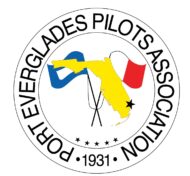Navigation
Ship Handling Guidelines
Ship Schedules
Pilot Regulations
(1) All vessels shall have a licensed state pilot or certificated deputy pilot on board to direct the movements of the vessel when entering or leaving ports of this state or when underway upon the navigable waters of the bays, rivers, harbors, and ports of this state, except:
- (a) Vessels exempted by the laws of the United States.
- (b) Monohulled vessels drawing less than 7 feet of water.
- (c) Multihulled, swath, or non-displacement vessels for which the product of the length overall and extreme beam is less than 6,000 square feet, and which draw less than 7 feet of water.
- (d) Any vessel, when docking or undocking; or
- (e) Any vessel, when moving about within a shipyard or moving between a shipyard and a berth or slip directly adjacent to the shipyard.
(2) A vessel is docking or undocking when a tug or tugs are assisting the vessel, or the vessel is making use of a bow thruster or other lateral thrust devices incorporated into the vessel itself, in close proximity to the dock, with the vessel under the direction or control of the master, docking master, licensed state pilot, or certificated deputy pilot. If the vessel that is docking or undocking is under the direction or control of the master or docking master, such direction or control must have been delivered from the licensed state pilot or be in the process of being delivered to the licensed state pilot.
(3) Nothing in this section shall be construed to deny the services of a licensed state pilot to a vessel otherwise exempt who applies for such service.
(1) Any individual who is not a licensed state pilot or a certificated deputy pilot, and who directs the movement of a vessel on which a licensed state pilot or certificated deputy pilot is required is guilty of piloting without a license. Any person piloting without a license is guilty of a misdemeanor of the second degree, punishable as provided in s. 775.082 or s. 775.083.
(2) In addition to, or in lieu of, the penalty provided in subsection (1), the department may seek the imposition of a civil penalty through the circuit court. The civil penalty shall be not less than $500 and not more than $5,000 for each offense. The court shall also award to the prevailing party court costs and reasonable attorney fees and, in the event the department prevails, may also award reasonable costs of investigation.
(3) The vessel and its owner shall be obligated to pay to the licensed state pilots at the port where the violation of subsection (1) occurred, the pilotage rate which would otherwise have been applicable, and, if the pilots in said port must resort to legal action to obtain a judgment therefor, the court shall also award to the prevailing party court costs and reasonable attorney fees.
